Millikan offers over 20 Advanced Placement (AP) courses for students to choose from. These classes are college-level courses designed to supply students with the experience and offer opportunities for students to earn college credit for a fraction of the price (Students are only required to pay a five-dollar fee if they are taking the test) while in high school.
AP courses are commonly offered to students prepared for rigorous material but are available to all students if counselors, teachers, and other trusted adults, and the student feels they are ready.
All pathways require an AP course/dual enrollment course to earn a pathway medallion at graduation. Unlike any other pathway, QUEST is the only pathway that requires its students to take multiple AP courses (a minimum of five) before graduation to earn their pathway medallion (a decorative medal worn at graduation to symbolize the graduates pathway).
Through my research, I found a common misconception of the word “requirement” in graduation.
QUEST Sophomore, Camila Hernandez said, “Yeah I think they [the required AP classes] are for graduation, but I am not sure.” She is not alone in this mindset.
Ryden Kim, a QUEST freshman, similarly believed he was forced into taking these courses to be able to graduate and although he was ready to face the classes head-on, he still appreciated the weight that was lifted off his shoulders when he realized he had a choice.
Owen Waytas, a junior in QUEST, feels students should not be put into classes they do not feel ready for.
“We [QUEST students] don’t get the choice between AP and regular history [in sophomore, junior, and senior year] so I think it would be very helpful for some of the students who do not want to take a hard history class, to have an option,” said Waytas.
Of course, Dual Enrollment is an option if a student decides they do not want to take an Advanced Placement course throughout the school year. At the end of the day, these are still rigorous courses that will challenge students.
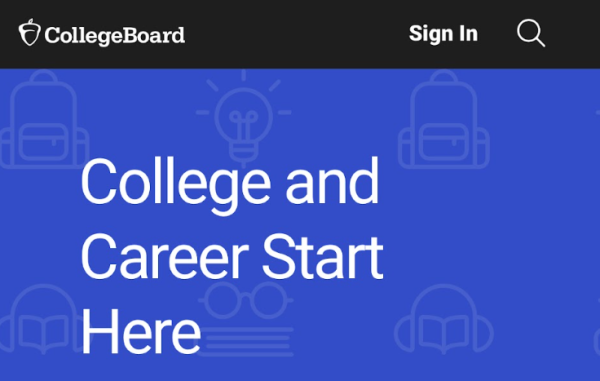
Ms. Barragan, the counselor for QUEST grades 10-12, explained that when she started at Millikan in 2003, certain AP classes were offered only to QUEST students.
“The skills that you get in a course like that [AP English Language], the rhetorical, the critical thinking, the writing skills, those are all things that college students need to have and if you do that class, you are so much more prepared for college so I think it is absolutely fine to require that course,” said Barragan.
What caught my attention after speaking with Ms. Barragan and various QUEST students was that many students are not aware of their alternatives.
Do I have to take five AP classes? Why do I only have one option for History for sophomore, junior, and senior year? Can I transfer to a regular history class? What is dual enrollment? If I choose to not take five APs will I not be allowed to graduate? Are our answers out there somewhere or is it just a lack of information?
Maybe this information is given and maybe there are simple answers to these. But speaking for myself and many students I have conversed with, we are unsure of where to find our answers. I urge the adults on campus to reach out and help us get more information in ways that are convenient to students.
In the end, students who decide to get into the QUEST pathway are goal-driven scholars who will rise to the challenge, but they should not be penalized or stripped of their gold robe in a course they do not enjoy for a decision they made before entering the new high school environment, especially without being given all the information necessary.









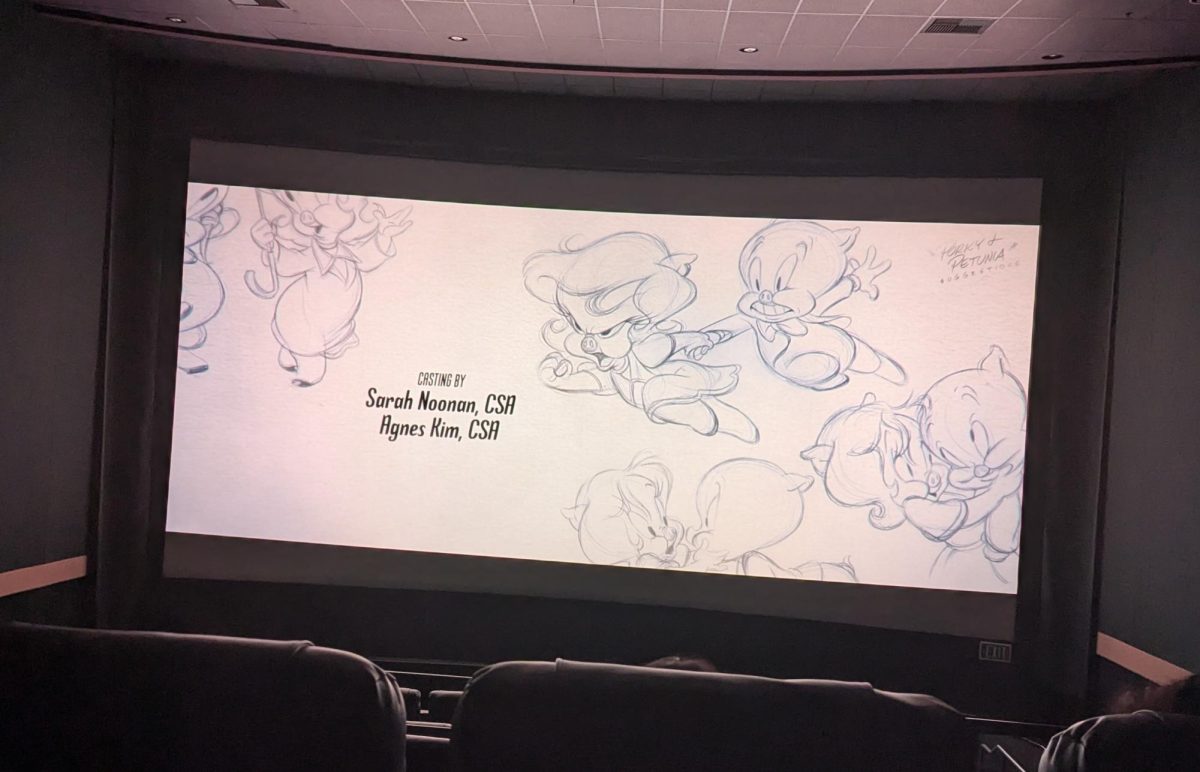
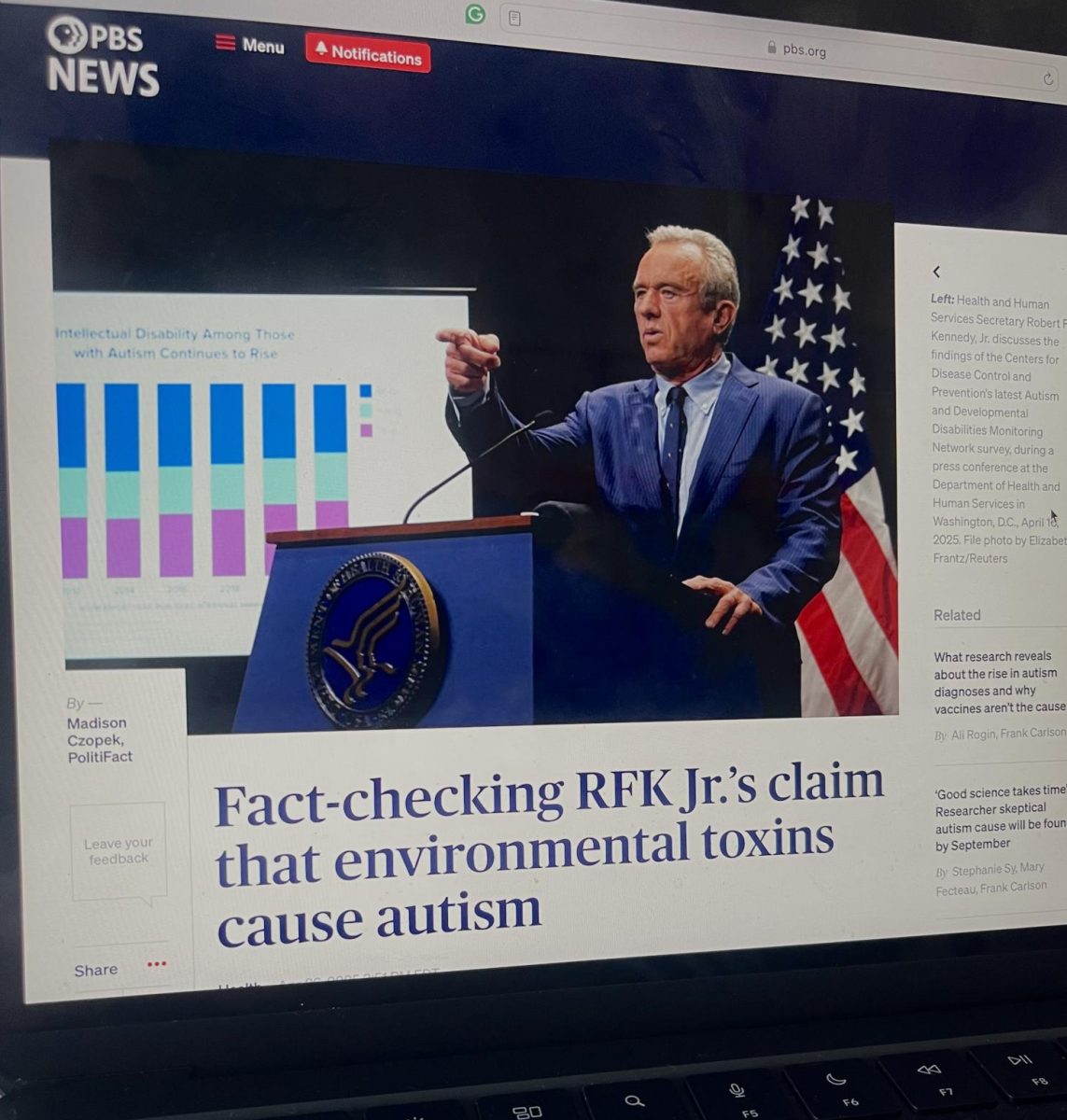



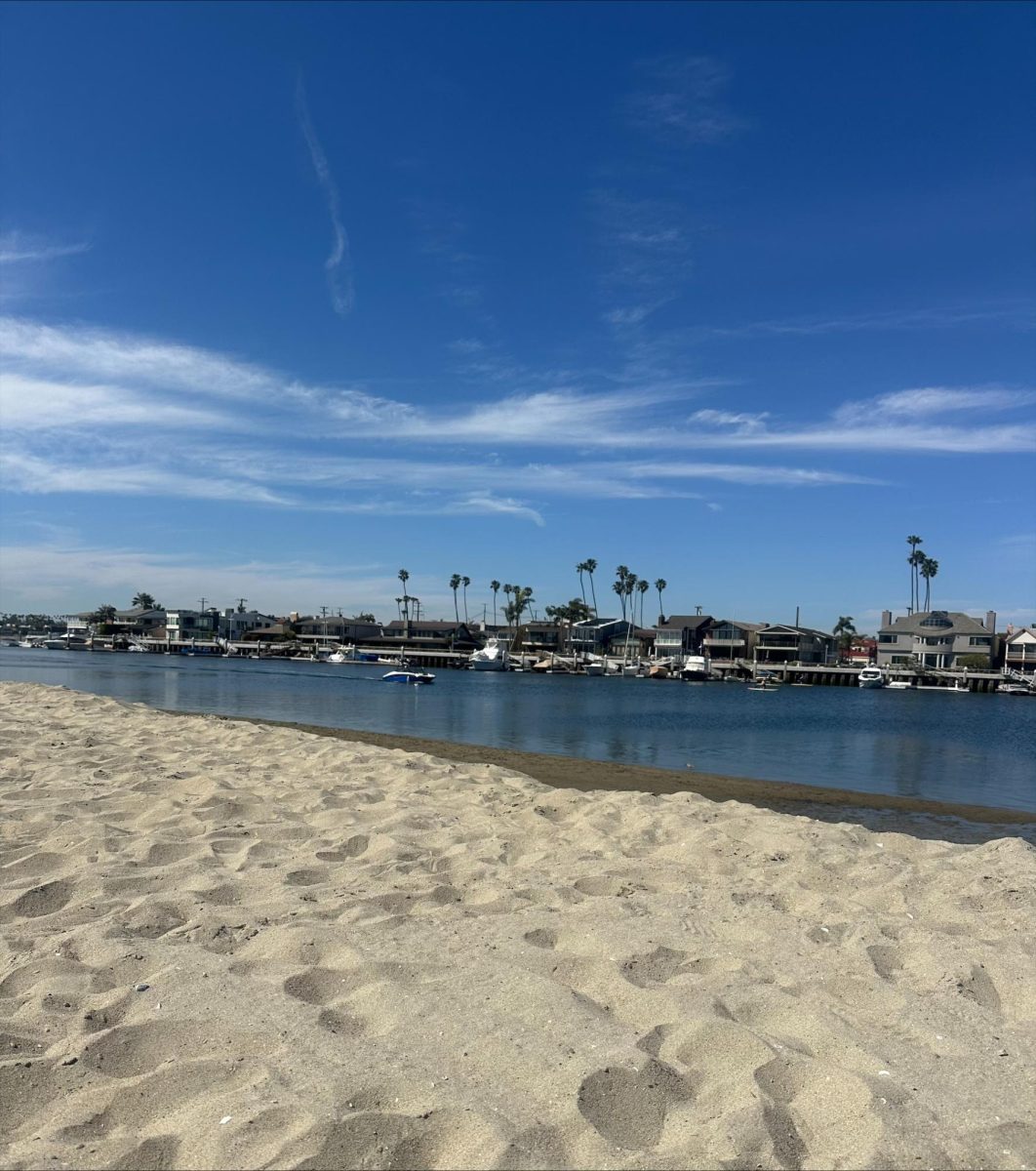
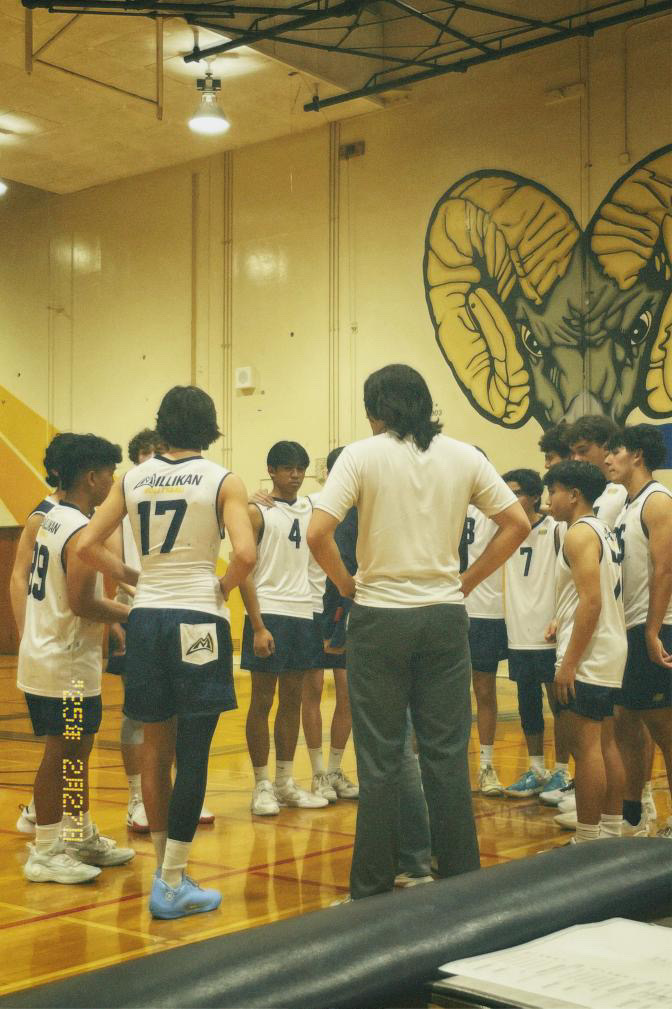


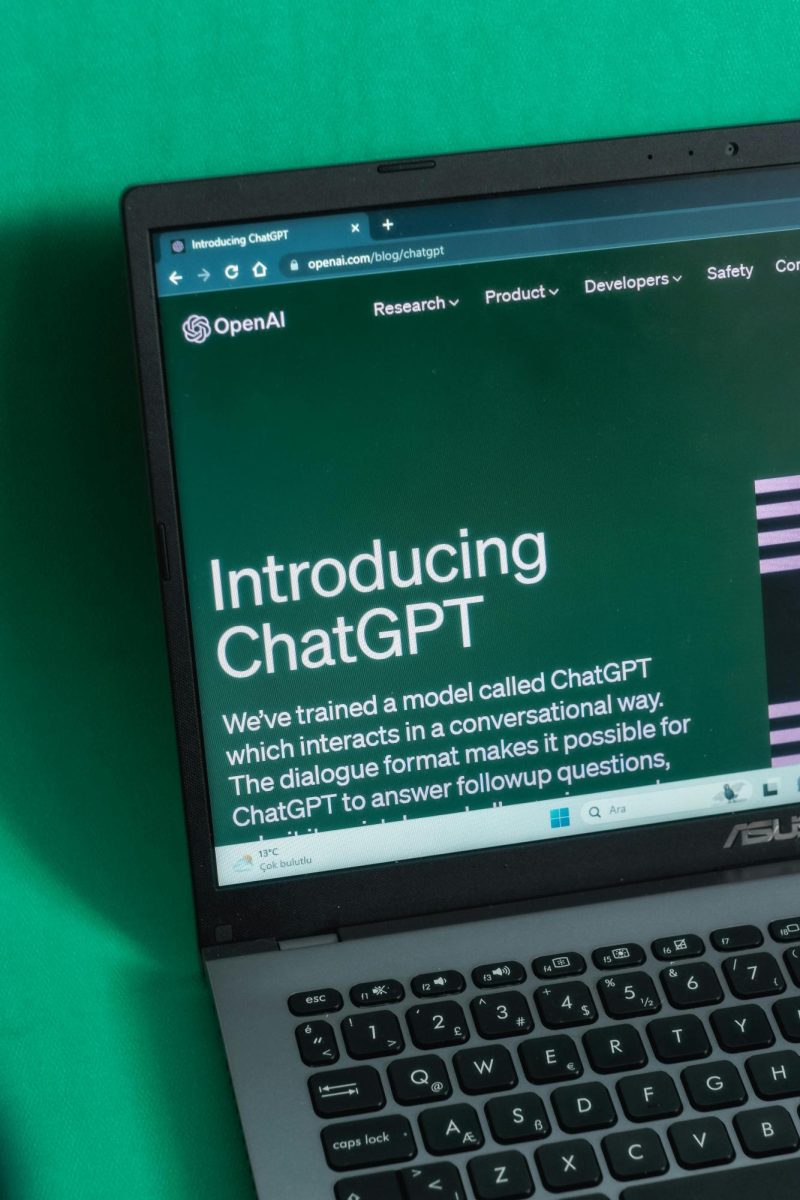



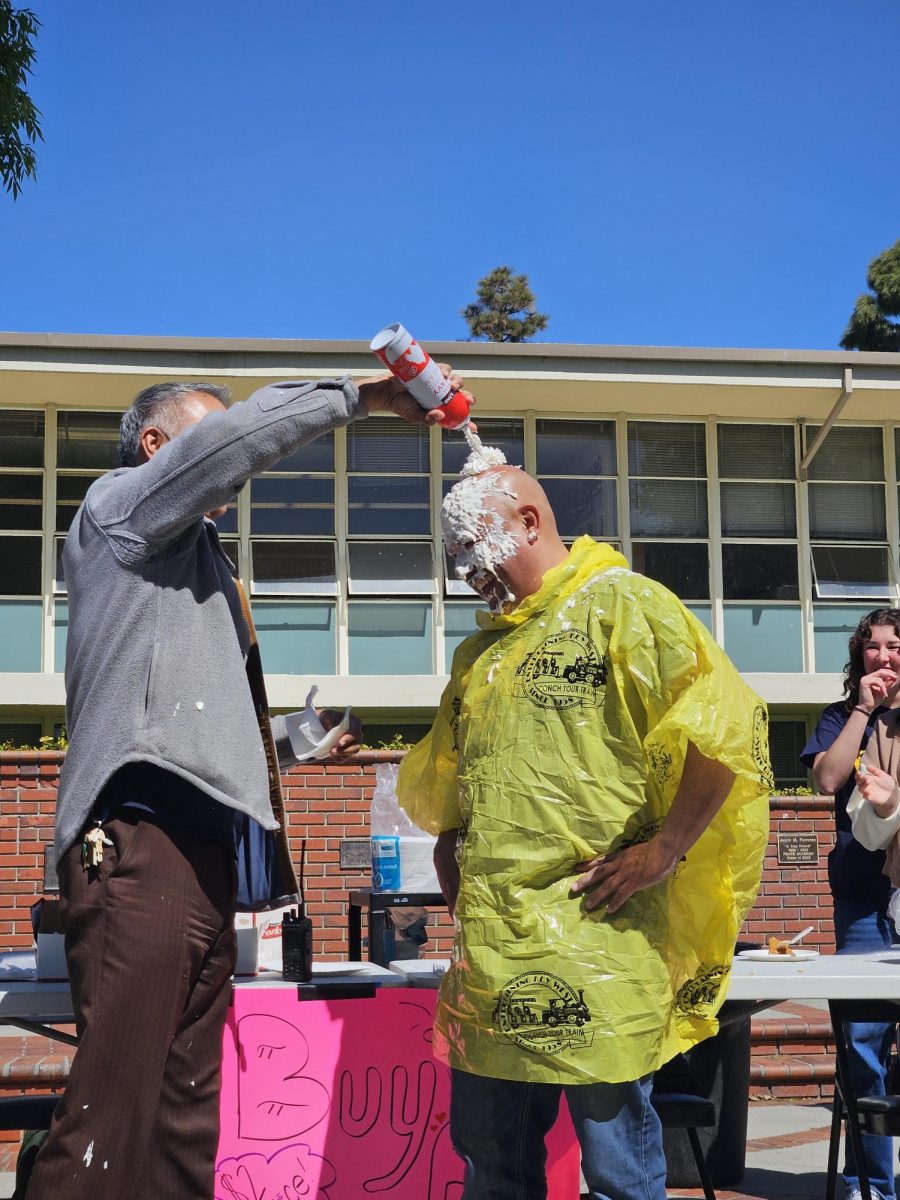

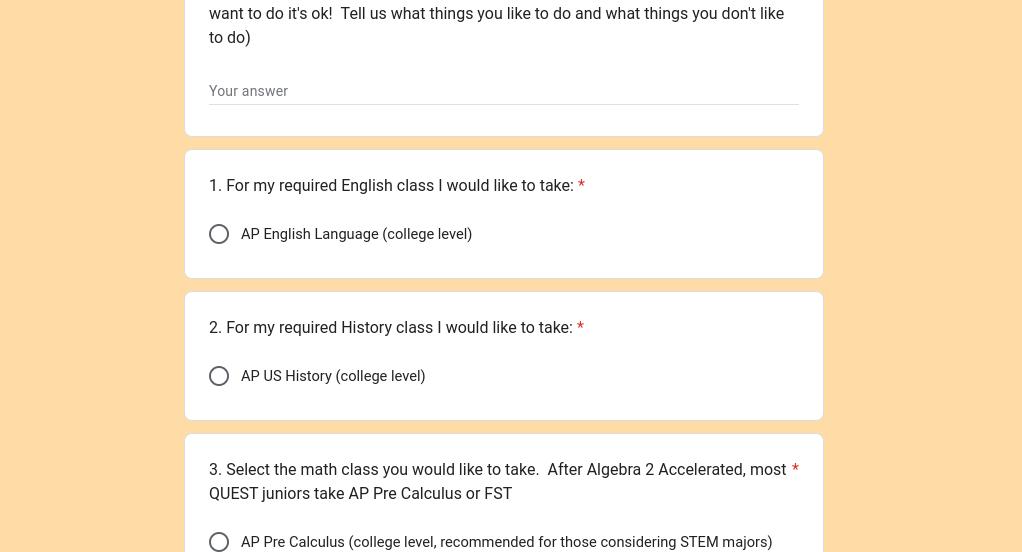

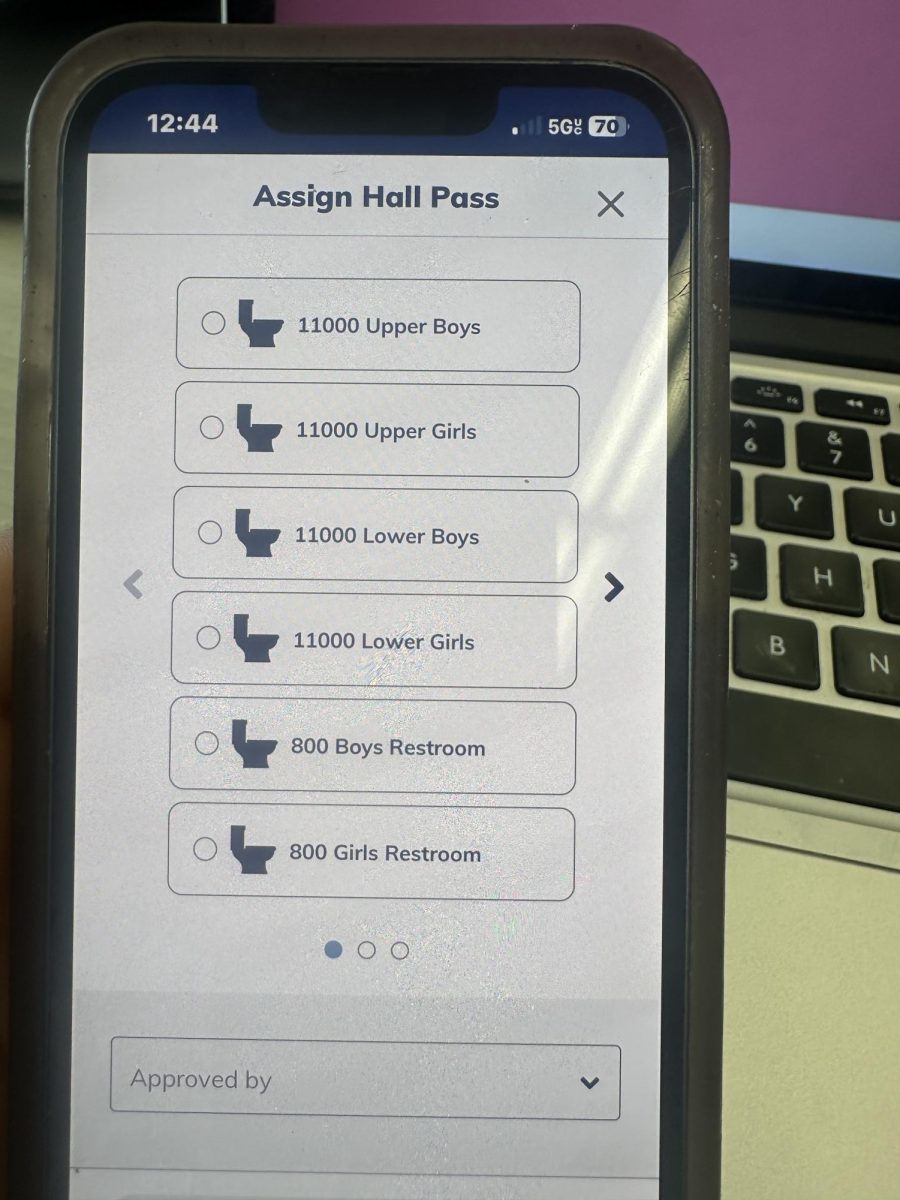






Rafael De Anda • Mar 1, 2024 at 10:47 am
On January 29, 2024 the article “The Burden of QUEST” by Arianna Garcia explored the challenges faced by students in the QUEST program at Millikan High School. Garcia provided helpful context by explaining the rigorous nature of Advanced Placement courses and the potential benefits of college level work in high school. She gave voice to the experiences of current QUEST students, many of whom felt unprepared for the demanding curriculum and unaware of alternative options like dual enrollment. Garcia broadened the perspective by including the insights of teachers and counselors familiar with program requirements. Her article shed light on the important issues and struggles faced by many students who feel overwhelmed by program expectations. By highlighting the lack of sufficient guidance given to incoming high schoolers, Garcia allowed QUEST students to feel understood, while also informing those in other programs that they are not alone in facing curriculum challenges. Overall, this article was an eye opener for all students navigating high school academic programs.
Maggie Wells • Mar 1, 2024 at 9:37 am
This article strongly highlights the struggles and confusion of many QUEST students, especially regarding AP classes and graduation requirements. Through interviews with students and counselors, Garcia does a good job at captivating the common opinions on QUEST. Being a fellow student in the QUEST pathways, this article is something I can strongly relate to. I, like many students, chose the QUEST pathway because it was highly recommended to me due to my middle school grades, but I didn’t realize the limited options I had. Although QUEST is a great educational and college preparatory pathway, it was very confusing to understand the difference between my medallion requirements compared to my graduation requirements. I do enjoy the classes that QUEST offers, but like many that were interviewed in Garcia’s article, I wasn’t extremely happy with the few “required” APs I had to take, such as AP histories. History is one of my least favorite subjects and to find out that i had to take the AP version, rather than an AP science or math instead of history, was disappointing. That being said, through Arianna’s perspective as well as those that she interviewed, the reader can gain a clear view on what its like going through QUEST.
Ryan Harlocker • Feb 15, 2024 at 10:37 pm
On January 29th, 2024, Arianna Garcia wrote an article titled “The Burden of Quest”, which focuses on the lack of information that Quest students are given in preparation for choosing or being in certain classes. Throughout this article, Garcia interviews several Quest students in various grades who voice that they are unsure which classes (specifically AP classes) are required in this pathway. She advocates for Quest students when she states “Are our answers out there somewhere or is it just a lack of information?” This is a common thought that I myself have had over the course of highschool where I am left to wonder if the classes that I am currently taking are beneficial just because they are required. But are they even actually “required”? Garcia concludes this unanswered question within the article with the main point being that no, there aren’t outlets to these questions. I like how she ended the article stating that at the end of the day, the students in Quest are goal-driven scholars and ultimately ask these questions for the sake of bettering our future.
Juliette Montiel • Feb 14, 2024 at 6:35 pm
This article does an excellent job of highlighting very important and common issues shared amongst QUEST students at Millikan. I, along with many other students in QUEST, have found myself asking these same questions addressed in the article. Because of this, I share concerns with the author, because it is important that QUEST students know what they’re signing up for. Information about QUEST doesn’t seem all that accessible to most students at Millikan and it’s not clear why many of our requirements are relevant. However, I see why Ms. Barragan says that there is something to be said about a challenge for students. Although I agree that preferences are important and should be considered in the course-selection process, I also believe any student in QUEST is capable of completing the requirements for the pathway’s medallion. Maybe a solution to the issue is creating a QUEST Q&A page on our website or holding a sort of panel for incoming (or current) students to ask upperclassmen questions about what QUEST really entails.
Overall, the author did an amazing job of giving a voice to a broad range of characters at Millikan and was able to relate to many students in the pathway.
Amanda Zorick • Feb 14, 2024 at 3:02 pm
On January 29, 2024 Arianna Garcia wrote an article titled “The Burden of QUEST”. I was interested in this article because I am a student in QUEST myself. I think the title is eye-catching and draws viewers of the website to read the article because QUEST is such a large pathway. I would have appreciated some explanation of what the QUEST pathway is at the start of the article such as what QUEST stands for and a description of the fact that it is the pathway that is the most academically focused at Millikan. I would like to point out that QUEST seniors are not required to take the Advanced Placement versions of Government and Macro-economics, which is the history requirement for senior year but the opposite was stated in the article. Overall, this article validated many of my feelings that I have had in my time in QUEST and I was very happy to find out that I am not alone in these concerns.
Sofia Uribe • Feb 14, 2024 at 1:10 pm
The author did an excellent job providing background information on Millikan’s AP courses and developing an argument regarding them. The author discusses how many students were confused as to whether completing five AP courses is a requirement to graduate in Quest, making students feel that they must take numerous APs.
This article brings up numerous good points, and spreads awareness on an important topic. I agree that students should know and consider all their options instead of feeling pressured to take APs that they may or may not even need. AP courses are rigorous, require time and energy, and come with an AP test in order to receive college credit. Students should take an AP that aligns with their interests, not to fill a perceived requirement, so it is pivotal that this confusion is cleared up. Especially now as the year progresses, many students feel tired and overworked. It is likely that confusion regarding how many AP courses to take may be part of the reason.
Mazen Mendoza • Feb 14, 2024 at 1:03 pm
On January 29, 2024, Arianna Garcia wrote the article “The Burden of QUEST”. As a QUEST student, I feel that the report is informative, valuable, and most importantly accurate to the state and mindset of the QUEST pathway and the students that choose to enroll in it. Many of the concerns and personal issues that were collected by the author from QUEST students are feelings that I feel are universally felt in some way, shape, or form by many if not most of the pathway’s student body; and for this I believe the article is fantastic. It accurately communicates how Millikan students feel about their class situation, options, and the “requirements” throughout thier highschool career. The article is great, and I feel that with sufficient exposure and or coverage by admin, it could prove to help the frustration that a lot of students feel about their highschool situation. I myself know multiple QUEST students that throughout highschool have expressed many of the same issues and or concerns as those stated in the article. In representing the feelings of the QUEST student body as a whole, the paper does very well.
Orlando Mayorga • Feb 14, 2024 at 1:02 pm
In this article, Garcia dives into the QUEST pathway here at Millikan and explains some of the uncertainties and questions that the students have been facing. Students from all grades, she explains, are not completely aware of the “required” classes they have to take when enrolling into the QUEST pathway. Garcia does a really good job of informing and explaining a really important matter that I’m sure a lot of people, including me, had not given much thought into before. Prior to reading this article and since being in high school, I believed that the minimum of 5 required AP classes were pre-determined and if I wanted, there are additional classes I could enroll into. That was the only information that I and many of the other QUEST students were given. This is what, I believe, inspired the writing of this article. I liked the use of various sources from both students and our counselor who is the most knowledgeable in this field. I think that the lack of information expressed in this article could be hurting many of the students. Such as was said by Garcia, some students might not feel like they are ready to take the rigorous courses that AP has to offer. However, some students may feel that a class is simply not one that they wish to pursue in the future and being aware that there may be alternatives would be very helpful. They may wish to enroll in an AP class that is more aligned with their future careers and goals. Overall, I think that Garcia did a great job at bringing a very important subject to light and explaining it very precisely.
Zariah Ruiz • Feb 14, 2024 at 12:59 pm
On January 29, 2024, Arianna Garcia wrote an article titled “The Burden of QUEST”. This article explains the rigorous schedule that QUEST students are misled into believing they must achieve in order to fulfill their graduation requirements. Garcia sheds light on the lack of knowledge QUEST students have when it comes to their classes, especially now in the new semester when they’re choosing their AP classes. I enjoyed how Garcia not only used facts to support her article, but also the inclusion of QUEST student’s opinion on the AP classes they’re forced to take. I agree with the statement by Owen Waytas, I don’t think that if a student doesn’t feel ready or capable for a certain class they should not be forced to take it. Especially in a program that thrives on academic validation and competition, is an extra AP class worth the risk of a lower GPA or losing the students golden robe. Instead of forcing QUEST students to take 5 specific AP classes, the student should be able to choose their own 5 AP classes that cater to their future goals for college.
Jenny Martin • Feb 14, 2024 at 12:58 pm
On January 29, 2024, Arianna Garcia wrote an article titled “The Burden of QUEST”. I found that the points made were very accurate! As a quest kid myself, there is a huge pressure for us to take them even though I knew that APs weren’t required to graduate. Besides not being in the same classes as your peers, APs are sold as the best and only option for people serious about their education. However, I would argue that having too many will only harm our learning. For this reason I am really happy to see someone talking about the alternatives and truths around these AP classes. I would have loved to see some teacher opinions along with Mrs. Barrigan’s as I can’t imagine that teaching an AP class is any more enjoyable for the teachers. Also, I think the tests themselves are worth mentioning as they add a lot of pressure to QUEST kids. We get less time to prepare than other districts, those weeks are a nightmare for students, and then we have lots of time left over in the year with nothing to learn. I especially loved the focus in this article on the miscommunication about the APs being “required”. Overall, I think this was a great article and I was really happy to see someone talking about how difficult our courses can be, even as highly driven students.
Mason Vanderburg • Feb 14, 2024 at 12:57 pm
On January 29, 2024, Arianna Garcia wrote an article titled “The Burden of Quest”. I thought this was a well written article because it was written from the perspective of a student. When considering your pathway, most of the information you will receive is supplied through counselors, teachers, and online resources which were probably made through adults. Most of these adults have been working with the QUEST pathway for years and thoroughly understand the requirements and how it works. I agree that a lot of students are not fully sure on what the requirements are to graduate from QUEST, and I think this article was the perfect way to bring light to this issue. I think the lack of choice is a flaw in the QUEST program, and she highlighted this perfectly with the first image in the article showing how we are required to take AP classes for our history and english courses during our junior year.
Caden Bui • Feb 14, 2024 at 12:55 pm
Dear Corydon Editor,
On January 29, 2024, Arianna Garcia wrote an article titled “The Burden of Quest”. The article expresses her concern on the rigorous course of the Quest pathway at millikan as she explains how every other pathway is only required to take one AP class whereas Quest students are required to take five AP courses in order to meet the graduation requirements. She believes that many students should be given an option on whether or not they want to take a more challenging AP course or a more standard class. Through interviews with many students she finds their beliefs are strongly related to hers such as an interview with Owen Waytas where he recognizes that Quest students only have the option to take an AP history class during their sophomore, junior, and senior years. She also interviews the counselor Ms. Barragan explains why she thinks Quest students should be required to take more AP courses as they will help prepare them more for college. Although Garcia does a great job finding Quest students discomforts in taking more AP’s than other pathways she never answers her question on whether or not it is required to take 5 AP’s to graduate. She reaches out for help and tries to find the answer but she never gets a clear answer on if it is required or not. I think this is a great article as a fellow Quest student because it is so relatable and I also find the struggle in being challenged with a rigorous course and having to do much more than any other pathway.
Sincerely,
Caden Bui
Benjamin Cholico • Feb 14, 2024 at 12:55 pm
On the 29th of January, 2024, Arianna Garcia published an article titled “The Burden of Quest” discussing the struggles that Quest students face while enrolled at Millikan. She quotes numerous Quest students including Owen Waytas, who states “ We don’t get a choice between taking AP history or regular history as AP history courses are required and this can be an issue for students who prefer not to enroll in more challenging courses.” Ms. Garcia also states the common work-load struggle that Quest students face and how on average most students that are in Quest are overloaded with homework every night. Not to mention AP testing preparation and the AP tests themselves, all cause tons of stress to be put onto students. The challenge of the quest also appears when students play sports and have after school practices. Practice equals little time for homework which leads to athletes needing to stay up all night just to complete it. This article’s purpose was to express how being a Quest student in itself is already more challenging than other pathways, and through hard work, Quest students are being over prepared for life after school.
Owen Waytas • Feb 14, 2024 at 11:02 am
As a student in quest myself, I was inclined to read this opinion piece. Being a Junior, I have already gone through the quest classes of my freshman and sophomore year, and I am half way done with my junior year classes. Being honest, I would not label myself the typical quest student people imagine when they think of quest. I strive for good grades but I don’t do much to actually achieve them. I have a lot of last minute assignments due to procrastination, but I think it’s because I have no aspiration to be in some of my classes. In fact, I feel like I didn’t have many options when choosing classes for this year and even next year’s senior classes. I do hope there are some changes because I do think it is a great program to be in, but it brings a lot of stress on students with the choosing of classes and the amount of APs taken which was highlighted perfectly in this article. Reading this piece, I got all the information I expected and some more. The only thing that I thought was missing was maybe someone who had found an alternative to taking the stressful amount of AP classes. Other than that it was a great, well-written article.
Danielle Hitt • Feb 14, 2024 at 11:02 am
On January 29, 2024, Arianna Garcia wrote an article titled “The Burden of QUEST”. This article covers the AP classes QUEST students are put into, without much choice. For example, she specifically mentions how QUEST students are put into an AP history class during their sophomore, junior, and senior years. This article was well written, and I appreciate how she interviewed other students in QUEST to get their input. I also appreciate how she pointed out that most QUEST students believe they must take AP classes to graduate, not just to get the pathway medallion. I would’ve liked to see Arianna Garcia mention what classes QUEST students could take as an alternative to the AP classes. In the article, she mentions that students don’t have to take these AP classes we are put into, but she fails to mention what classes we could take instead, and what actions we would need to take to switch. All in all, this was a very well written article that thoroughly explains the frustrations QUEST students feel when being forced into AP classes.
Isla Haffner • Feb 14, 2024 at 11:01 am
On January 29, 2024, Arianna Garcia wrote an article titled “The Burden of QUEST”. In the article, Garcia discusses the inadequate answers for the many questions that QUEST students have, specifically about the AP courses. AP courses, as Garcia describes, college level courses that offer students opportunities to earn college credit with a fragment of the fee. Unlike other pathways at Millikan, QUEST students are required to take five AP courses in order to earn their pathway medallion, but students are wondering if the five AP courses are required to graduate. Garcia provides the reader with credible sources (students in QUEST from multiple grade levels). Her topic is interesting and her writing is engaging, using rhetorical questions to get her point across. This informative article can bring awareness to the questions that many QUEST students may be too afraid to ask. For example, I was unaware that the AP courses were required in order to earn the QUEST medallion, not to actually graduate. Coming into high school, I didn’t even know what AP courses were, let alone know that QUEST required their students to take five of them. This article did a great job at informing QUEST students about the AP courses and what is truly necessary.
Lilly Alexander • Feb 14, 2024 at 10:57 am
On January 29, 2023, Arianna Garcia wrote an article titled “The Burden of QUEST”. Garcia nicely starts off her article by defining what Millikan has to offer. It attracts the reader to want to know more about what she is going to talk about when mentioning AP classes. By defining what AP courses are you get a sense of what she is going to talk about and how it relates to “The Burden of QUEST”. It’s good how Garcia utilizes other pathways as well to show the burden of quest and how much different it is. With a good introduction, Garcia starts the main topic of her article by using a person from QUEST mentioning how she doesn’t know if the AP courses are required for graduation. This shows how many QUEST students misunderstand whether the 5 AP courses are a requirement to graduate or to get the QUEST medallion. By interviewing multiple students in QUEST, Garcia can show that not only a few students thought this way. Garcia finds a good way to end the article by recommending a solution to this unknowingness, by saying adults should reach out and help us. She finally closes the article with her final statement on her opinion about required courses.
Jacob Binder • Feb 14, 2024 at 10:56 am
On January 29, 2024, Arianna Garcia wrote an article titled, “The Burden of QUEST.” This article does a good job of giving insight into the minds of QUEST students thought process when it comes to picking and taking their rigorous classes. In the article, Garcia interviews 3 different QUEST students, a freshman, a sophomore, and a junior. This is a great way to do this because you are getting the point of view of what is basically 3 completely different QUEST students.
I like the way this article is formatted, but I would also like if there was more of a balanced focus of all of the hardships of QUEST rather than just focusing on the fact that we have to take 5 AP classes. Stuff like higher expectations from teachers, parents, etc. is something else that could’ve been talked about in this article, as I have heard from teachers sentences such as; “You guys are my QUEST class, you guys are smarter than this.”
Outside of that, this article highlights a good amount of things about QUEST that maybe the people outside of QUEST might not know. A lot of people in other pathways don’t worry about taking a certain amount of AP classes or even think about dual enrollment. The interview of Ms. Barragan give some QUEST students something to think about as well. If you are already in QUEST, you are most likely wanting to go to college and be successful, so some AP classes should be required. Although I do agree with that statement, I believe that if they are required, then students who do not feel ready for the class a month in should be able to transfer out as well, which is something that the school does not allow that long after a semester starts. Overall, I think this article highlights some stuff about QUEST that is a burden on a lot of the students lives.
Laurissa Avina • Feb 14, 2024 at 10:48 am
On January 29, 2024, Arianna Garcia wrote an article titled “The Burden of Quest” Garcia’s article was well written and informative because of her use of facts and evidence. I liked that she opened the article by clarifying what an AP course was because it helped give insight to those that may not be aware. The main focus of the articles was QUEST’s workload and how overwhelming it may be which I found to be very relatable because sometimes it feels like a lot, as a QUEST student myself. Her use of students from various grades helped to provide evidence for her claim that QUEST students are not always aware of the extent of the pathway which I found to be a very strong point in this article. My favorite part about this piece was at the end when Garcia urged staff to talk more about the program rather than brushing it to the side so that students don’t face a huge amount of uncertainty. Overall, Garcia did an excellent job at highlighting the stresses of QUEST and bringing up the importance of being aware.
Vickie Lam • Feb 14, 2024 at 9:21 am
This article caught my attention immediately. I am also a Questie and I completely understand as well as resonate with this title. The “requirements” of this pathway really scared me as a freshman. I didn’t know what to do other than go with the flow. The editor of this article caught this situation a lot from the interviews with other students. They also asked good rhetorical questions near the end such as, “What is dual enrollment?” I didn’t know this was an option at all until I heard my friends doing it and I’m a junior now. Reading this article really opened my eyes. I am also questioning this pathway now, are we really required to do 5 AP classes to graduate? Comparing this with my non-quest friends’ requirements, it dawned on me how much quest kids are forced to do. It’s not harder than other pathways, but it is more demanding and controlling. I also feel like information is hard to get. They briefly go over the pathway requirements during orientation and that’s it. This article really does go deep with quest kids, it understands what I think the majority of the students are feeling. I enjoyed reading this article. Thank you for making it.
Sincerely,
Vickie Lam
Emily Avina • Feb 14, 2024 at 9:13 am
On January 29, 2024, Arianna Garcia wrote an article titled “The Burden of Quest”. Garcia explains the difficulties and lack of knowledge QUEST students are given. Students in QUEST are required to take certain AP classes even if there is an alternative for other pathways. These students are under the misconception that to graduate we must take all these AP courses. However, I believe that QUEST students should be able to choose their five minimum AP classes instead of being forced into certain AP courses like AP World History or AP English Language and Composition. Although these classes may better prepare the QUEST students for college, not everyone is ready or prepared for the difficulty of the class which could strip the student of the achievement of a gold robe at graduation. Garcia has gathered the input of QUEST students form many different grade levels, who all agree, stating the misconception about the requirements of graduation with their pathway and how they believe students deserve the option to choose all their classes, including AP courses. A good solution to this problem, as Garcia states, is to promote the opportunity of dual enrollment as it is a great alternative to taking the AP course provided at Millikan. That way students will have more freedom and control over the classes they are taking.
Morgan Zimmerman • Feb 14, 2024 at 9:12 am
On January 29, 2024, Arianna Garcia wrote an article titled “The Burden of QUEST”. In this article, Garcia gives a detailed description of the AP classes offered at Millikan and the requirements for a QUEST medallion worn at graduation. This article is very well written, and I like how she used provable facts as well as student opinions to help support her claim. I also like the use of questions, as they are some I’ve asked myself and I know others are wondering too. The use of quotes from Mrs. Barragan was a nice addition as well, seeing as though she is probably one of the most knowledgeable people on the matter. It was interesting to see that she believed it was completely fine to require these courses for QUEST students, and help shed light on a different side of the argument. The only thing that I think should be added to this article is a quote from either a QUEST student that was able to choose a non-AP history, english, etc. class or a student who dropped out of an AP and decided to take a regular curriculum class. I think the addition of a quote from a student like that would help convince the audience of the argument and give insight on their decision and the aftermath. Otherwise, this article was very well written and enjoyable to read.
frida santiesteban • Feb 13, 2024 at 1:19 pm
On January 20, 2024, Arianna Garcia wrote an article titled “The Burden of Quest”. I
really enjoyed this article and how you opened up on your opinions. Quest is also the path I
decided to stay with for these 4 years of high school. You gave some wonderful information that
lots of Quest students should be taught freshman year. Your article shines light on how hard it
can truly be as a Quest student. All these expectations that Quest students have which they had
no idea they were signing up for. As you mentioned it shouldn’t and doesn’t have to be that way.
There are other options for us to explore and this article truly helps students understand that.
Adding on, you did a great explanation of what Quest kids have to be placed with.
However, I wish that you added exactly what classes we have to take and compare the intensity
of the Quest to other pathways. Quest is for sure one of the hardest pathways on this campus. It
helps to challenge students but at the same time it can burn some of us out.
Overall, this structure of this article was done so well. You have hit all the points that our
fellow Questies can for sure relate to. This information too is a great resource for students to
know that they aren’t tied to these APs and can take dual enrollment as they please. As you stated
in the title, Quest may come as a burden to us and leave us with no choice but to comply with
these pathway expectations. It is a very hard topic to talk about, so thank you for speaking out on
this. The topic of the struggle to be in Quest doesn’t get enough attention as it should. With this
article that you have posted you have now opened the path for other students to speak up and
realize that things don’t have to be so difficult for them.
EricaTorres • Feb 13, 2024 at 1:07 pm
On January 29, 2024, Arianna Garcia wrote an article titled “The Burden of QUEST”. This article was focused on the Millikan QUEST Pathway and the struggle it is for students to face the tough classes that are required for them. Garcia focuses on getting input from different people around the QUEST community. She interviewed sophomores and junior students, along with the 10-12th grade counselor, Ms. Barragan. The students expressed the concern over being forced into a vigorous class they don’t feel prepared to take and lacking information on what they are being put into. The article explained the use of AP courses and the requirements with these classes for the QUEST Pathway. Students are forced to take a minimum of 5 AP courses to receive the QUEST medallion on graduation, most students were informed they needed to take these classes to graduate. This confusion is what drove Garcia to explain the lack of information being easily accessible for students today looking to enter this pathway.
The use of quotes from the students helped to give the audience extra insight to what burdens these students and what they feel is the best approach for the pathway. I feel that the article could be more effective with a senior perspective over how much pressure they faced over the years. However, the use of the quote from Ms. Barragan is very helpful as she too was a student but is now here to help the students succeed and has seen it is very possible to complete the required courses with a passing grade. I enjoyed the use of different perspectives and as a QUEST student felt empathy for the students’ adversity.
Savannah Martinez • Feb 13, 2024 at 1:06 pm
On January 29, 2024, Ariana Garcia wrote an informative article titled “The Burden of QUEST” commenting on the various Advanced Placement courses required for QUEST students to take during their four years of high school. The article consists of many interviews between students and staff members. For example, Waytas comments that he does not think that it is fair that QUEST students are required to take five AP courses in order to get the QUEST medallion if they don’t feel ready. Garcia also includes an interview of head counselor Mrs. Barragan. She expresses that in these AP courses, students learn the different skills in order to succeed in life, such as the skills in AP English Language. Garcia also urges that administrators and staff members should answer the unanswered questions that students have regarding AP courses.
This article gives a strong context to many of the worries that QUEST students have regarding these advanced courses. I praise Garcia for having more than two interviewees to support her argument that many QUEST students don’t know the full context of these AP courses. The more interviews seem to give more perspective to the reader.
I think it is also important for Garcia to put more context regarding QUEST course selection. Garcia can do this by embedding a picture of the “Course of Study” document found on Millikan’s website. That document gives out the projected courses for all the years in high school as a QUEST student. This information is public knowledge that is available to all who visit the Millikan website even before they enter high school. It will also demonstrate that Garcia can acknowledge the other perspective of the AP courses argument.
Although I don’t necessarily agree with this article completely, I believe that Garcia still provides great context regarding the many challenging courses that QUEST students are required to take in order to achieve the QUEST medallion.
Emma Buth • Feb 13, 2024 at 1:05 pm
February 13, 2024
Dear Corydon Editor,
On January 29, 2024 Arianna Garcia wrote an article titled “The Burden of Quest”. Ariana wrote this article very well, especially when addressing the confusions Quest students have been having regarding taking AP classes. Many people were interviewed and of all the responses given, almost every student seemed to be confused about whether or not they need these AP courses to graduate. It discusses how within the Quest pathway, throughout 10,11, & 12th grade, you don’t have an option to not take an AP course since it is “installed” into our pathway. I believe that this is both fair and not. Mrs. Barragan, who is the Quest counselor, states that she believes it’s not an issue to have these courses since it will better prepare students for a college like environment class. Although I also agree with why some students believe we should have an option to take a non-AP class. Many students tend to achieve and want to do good in their classes. Although if they believe they won’t succeed or do well in a class, maybe they should have the option to take an alternative class instead. So that way, they can still meet their academic goals and feel achieved when doing so.
Sincerely,
Emma Buth
James McCullagh • Feb 13, 2024 at 1:01 pm
Dear Corydon Editor,
On January 29, 2023, Arianna Garcia wrote an article titled “The Burden of QUEST”. The author talks about the perceived requirement of QUEST to have to take at least five AP classes to graduate. The author informs us that we do not actually have to take all five AP classes to graduate. Although it is a choice, I think QUEST students should still be required to take some of the specific AP classes. When you sign up to be in the QUEST pathway you should have an expectation of what kind of workload you will need to do. It is a given that QUEST is made to be hard and prepare the students for college, hence requiring college-level classes should be expected. QUEST students are all mostly made up of high achievers who know they can handle the work of the classes they sign up for. When you first select the QUEST pathway the requirements are listed. If you do not think you can handle the requirements of the QUEST pathway, you should not try to go into it at all.
Sincerely,
James McCullagh
Ezekiel Zaldivar • Feb 13, 2024 at 11:08 am
On January 29, 2024, Arianna Garcia wrote an article titled “The Burden of Quest”. This is a well-written article that effectively communicates the struggles involved with being a Quest student at Millikan High School. The article explains how many Quest students feel as though they do not properly understand all the options available to them when selecting new classes. It was a good idea to put a picture of the course selection form as a hook because it shows AP English Language and AP US History as the only options. Additionally, interviewing different Quest students helps demonstrate a widespread feeling of uncertainty among other Quest students.
Personally, I agree that some Quest students may not be aware of their potential options in selecting courses, however, many if not all students read what the Quest pathway would include when they chose their pathway. I agree that there should be more information on available options however students also need to make sure they understand what they are signing up for when they select a pathway.
Furthermore, I agree with the opinion that students should not be stripped of their gold robe for taking advanced courses. This aspect of the gold robe has never made sense to me, hypothetically, a student with a 4.3 GPA and one B would not get a gold robe however a student who took no, or very few AP courses could end up with all A’s and get a gold robe. I believe that this system is harmful, as AP students will not only be more stressed, but they will also be more inclined to not take challenging courses due to fear of losing their robe. I think gold robes should be awarded based on GPA because students taking AP classes are effectively punished for challenging themselves with college-level courses.
Phoebe Mims • Feb 13, 2024 at 11:03 am
This is an opinion piece regarding the many confusions of being involved in the QUEST program at Millikan, as well as participating in “required” AP Courses. I feel like this article firmly and clearly expresses the concerns we (the QUEST student community) have. The questions Garcia presents are all applicable, and I can say I have wanted answers to these as well. Even when I have gotten answers to some, I have felt they are still unclear. I appreciate that she takes the opinions of other students (a freshman, sophomore AND junior student) to back up her own stance on the issue. I also think it is important that she brings to light that although most QUEST students, we can assume, are capable and willing to “rise to the challenge,” it is unfair to be penalized for taking a class (a non-A.P. U.S. History class, for example) that the student feels they would be more successful in, especially if they know the class will not necessarily be beneficial to their desired career path or other goals. I think all the questions, comments, and concerns that Garcia brings to light are in alignment with most QUEST student’s viewpoints, and as she expresses, I hope administrations take her opinion article into consideration when taking future corrective actions.
samara • Feb 13, 2024 at 11:03 am
On January 29, 2024, Arianna Garcia wrote an article titled “The Burden of QUEST”. Garcia dives into the Advanced Placement courses that Millikan offers, over 20, and goes over the requirements of each pathway here at Millikan. As a student who has taken several AP courses, I have also had the misconception that all of these AP courses are required in order to graduate. I am a QUEST student and I have found it challenging to try and work around my schedule because of the “required” classes that we have to take. I often think about how we do not exactly have the option to take regular courses. Although, there are ways to work around taking an AP course over the course of the school year. Dual Enrollment is an option for students who do not want to take an AP course over the entirety of the school year. Going into the QUEST pathway freshman year, I knew it was going to be a lot of work but I was ready for the challenge.
Garcia does a good job explaining the different viewpoints on the QUEST pathway and how it differs from the other pathways here at Millikan. There are many unanswered questions as to what the alternatives are for AP courses. Many people are unaware of Dual Enrollment and are not sure how to sign up for these classes. Garcia talked to several Millikan QUEST students and received their feedback on AP classes. QUEST students often feel pressure to take these AP courses because they are “required”, but in reality we have the option to take regular courses.
Samuel Figueroa • Feb 13, 2024 at 11:01 am
I agree with many points in this article. I also believe that many QUEST students will be able to relate to the issues discussed in the article. I believe that it is important for students in QUEST to take as many AP classes as possible, but without being too overwhelmed with work. I agree that AP classes give students more experience before heading to college.
I also agree with some of the points brought up by other students who were interviewed in the article. It would be beneficial for some students to not take an AP history class sophomore and junior year. Having an easier history class would allow some students to take harder classes in other subjects that would better prepare them for their possible career path.
I was unaware however, just as it seems many other QUEST students were, that AP courses were not required for graduation, but for a QUEST medallion. I support the idea that making this more clear for students would help relieve some of their stress, even though I still think everyone is capable of doing AP classes.
Anthony Lopez • Feb 13, 2024 at 10:56 am
I personally really liked this article as it is very descriptive when it comes to the selection for the upcoming school year. Garcia did a very good job when it came to getting opinions from QUEST students from the three different grade levels that are going to be choosing their classes. I can relate to this article as I had at first thought and questioned the “minimum of five AP classes.” This seemed like it was going to be difficult, as there were going to be a minimum of five and I believed that we needed it to graduate. This is no longer a concern as I have taken/ am taking a total of 8, but I do believe that there should be some clarification on what it means when it comes to a minimum of five AP classes. This article was very well written and gives a lot of details and information about the situation QUEST students are going to be put through, while giving some ideas, such as dual enrollment.
Santino Garetto • Feb 13, 2024 at 10:54 am
On February 13, 2024, Arianna Garcia wrote an article titled “The Burden of QUEST.” I felt greatly connected to this article as a QUEST student. I felt a relation to the thoughts of various QUEST students as they shared their experiences and challenges in the pathway. I was surprised to learn that “certain AP classes were offered only to QUEST students.” I did not fully agree with Ms. Barragan when she said, “The skills that you get in a course like that… those are all things that college students need to have… so I think it is absolutely fine to require that course.” While it is true that an AP class is an effective method of preparing students for college, I fail to see the reasoning behind making these classes mandatory. Especially with extracurricular activities, some students are unable to manage the amount of work from AP classes. A better alternative would be to make some AP classes mandatory while leaving the rest of the classes up to the students’ choice. I agree with the claim that many students are unsure of where to find information about their courses. Especially for freshmen, getting the adults on campus involved to inform students of their academic futures would help eradicate various doubts.
Kennedy Smith • Feb 13, 2024 at 10:54 am
On January 29, 2025, Arianna Garcia wrote an article titled “The Burden of QUEST”. This article explains the confusion that lots of QUEST students experience when figuring out what classes to take. QUEST can be seen as an advanced program as Garcia explained that it is the only pathway at Millikan that requires students to take multiple AP classes in order to receive the medallion at graduation. So, lots of students assume that being a part of this program means it is mandatory to take at least 5 AP classes in order to graduate high school.
Garcia explains that lots of students aren’t aware that you don’t have to take these classes in order to graduate, but only in order to receive the QUEST medallion. I think Millikan should make students more aware of what these requirements mean so that students can take classes that they really think would benefit them. Students that Garcia interviewed explained that they didn’t even know there were other options for non advanced placement classes because the only options on the QUEST class registration form were AP. Some students explained that they think they would benefit more from non AP classes because it moves more at their pace.
The confusion that these QUEST students are experiencing when choosing classes seems to be very common. I agree with Garcia and can say that I have been confused myself on what the difference is between requirements for QUEST and requirements for graduation. I think that some AP classes should be required for the program as it gives students a push to work harder and it sets QUEST apart from other programs. But, I also think that it is really important for students to be made more aware of the real requirements for graduation so they have the flexibility to choose what is best for them.
Isabella Alcala • Feb 13, 2024 at 10:54 am
On January 29, 2024, Arianna Garcia wrote an article titled “The Burden of Quest”. This article caught my eye because I am currently a Junior in the Millikan Quest program, so the title intrigued me to read more. As I read the article I realized editor Arianna Garcia did an amazing job explaining why Quest can be more complicated than other pathways. She gave many opinions from students currently in Quest that are in different grades as well as the Quests counselors opinion on how Quest students are required to take some AP courses. I enjoyed that she gave multiple opinions from others but kept an unbiased opinion throughout the article
I do agree with Ms.Barragan’s opinion that we do need to take the AP courses because they absolutely prepare us for college. Why would we be in the college preparation program if we are complaining about taking college classes? It’s necessary, although some of the AP classes may not be our cup of tea, they prepare us for college and that’s what we want as Quest students. I also was happy to see that she included the Quest students who can also take dual enrollment classes at lbcc instead of taking the AP classes at school. I can relate to that statement because I did take US history over the summer at lbcc instead of taking it during the school year. So to the people she interviewed and said they didn’t want to take certain AP classes that were mandatory, they could always do dual enrollment which is much faster.
In all, I loved the article because I was interested in the subject as well as what the people who were interviewed had to say. Arianna Garcia did a great job structuring the article, while highlighting the main issue that it is confusing for some students in Quest to find answers about the classes that are required or not.
Memphis Nafarrate • Feb 13, 2024 at 10:49 am
Garcia’s article is an opinion piece that gathers multiple perspectives on the course selection process for Millikan’s Quest pathway. The author effectively informs her audience on the course selection process by explaining the use of the word “requirement” when selecting classes as well as using images to ensure clarity for the reader. Throughout the article, the reader is informed on the decisions Quest students have to make- or lack there of. Garcia provides opinions from both staff and students in order to establish a clear argument. The arguments of students in multiple grade levels support her idea that many Quest students are confused on the idea of pathway requirements versus graduation requirements, and feel restricted when it comes to selecting their courses for the next year. Garcia urges staff at Millikan to add ease to the process by clarifying the requirements and what they mean, as well as offer flexibility to those who do not desire to take an incredibly rigorous/AP course. She even provides a counterargument from the counselor to eliminate bias and include various perspectives. Overall, Garcia’s opinion article effectively gets her point across while using evidence from credible sources to support her argument.
Kevin Perez • Feb 13, 2024 at 10:48 am
I found this amazing article very relatable since I am also in the QUEST pathway and have also started asking myself questions about the requirements for this pathway. I like how the editor’s flow of words was very smooth and the structure of her writing was on another level. The information presented in this article also helped me to understand that I am not alone in wondering about why we have to do so much in QUEST and why we aren’t allowed to choose what classes we would like to take.
While reading this article the first thing I saw was the picture and I got to say that was the perfect picture to choose from. It not only shows the hard classes the QUEST students have to take but also the fact that there is no second option in selection of classes.
Finally, the end of the article was a perfect way to close this article making the reader analyze the questions they should have about their pathway. Overall, it was a great article.
Caroline Klein • Feb 13, 2024 at 10:48 am
Dear Corydon Editor,
On January 29, 2024, Arianna Garcia wrote an article titled “The Burden of QUEST”. The article talks about the rigor of being in QUEST and how that affects students. While I agree with the argument that students should have a choice between taking an AP or regular course, I also believe that it would be beneficial to acknowledge the fact that it was our responsibility as students to have researched QUEST and its requirements prior to selecting it in 8th grade. Students should have asked themselves the question of “Can I handle the rigor of QUEST? Or should I choose another pathway?”. After all, QUEST was created to prepare students for college, hence the college level courses that must be taken. This would provide another strong counter argument that would compliment Mrs. Barragan’s statement about the benefits of taking AP classes. However, I did agree with the fact that it should be more thoroughly explained whether or not it is absolutely necessary for students to take 5 APs or if they can transfer into regular history courses.
Sincerely,
Caroline Klein
Riley N Ortiz • Feb 13, 2024 at 10:46 am
Personally, I really enjoyed this article, as I have been a lover of the band for years but hesitant to listen to their new music. I had heard one of their newer songs, “One More Time”, on the radio and was not much of a fan of their new genre but found the lyrics to be very well thought out. I like how you gave a very detailed description of the band’s history, as I learned things that I had not known previously.
Furthermore, I really enjoyed hearing your opinion on their new album, as I have not gotten around to listening to it myself. I love that you added some sense of humor with your remark about the band being able to grow up. I too am skeptical about listening to the album because I am less interested in listening to the new genre they’ve entered. However, hearing your thoughts on their new songs makes me feel a little more open-minded about listening to their new music.
Sophia Nygaard • Feb 13, 2024 at 9:14 am
On January 29, 2024, Arianna Garcia wrote an article titled “The Burden of Quest”. She starts with a description and understanding of what AP courses are and how they help later in college. But then she expands on what is labeled in the Quest pathway as a “requirement” and the choices. Although we can view this as a relatively good question, simplifying “requirement” would be better when referred to as “options” or allowed classes due to what is known when those who do take any form of school are mandated to take English, Math, History, and sometimes Science. But there is also the straightforward fact that the Quest pathway is meant to be rigorous and test yourself in teamwork and individually. However, I love that you included students from one grade level and the counselor in charge of the courses and students, as I believe it gives a great outside perspective. A perspective from a senior would have been a bonus due to their last year in the pathway and their outlook on it all, plus the class they are taking now. Along with a possible question such as “If there was an available class that did not have to be AP, such as US History, would you have taken the AP version?” Likewise, you did get a good answer out of Ms. Barragan on her perspective and how over the years it has changed. But in the end, I love how you ended on a bussel of questions that I hope can be answered in the future and spread the awareness of “required” classes and why.
Mikaela Gan • Feb 13, 2024 at 9:13 am
On January 29, 2024, Arianna Garcia wrote an article titled “The Burden of QUEST.” As a QUEST student I agree that if you decide to go into the QUEST pathway you should be goal driven and should be up to a challenge. QUEST requires you to take a minimum of five Advanced Placement courses but you shouldn’t let that stress you out. As a QUEST student we are required to take these classes because the schools believe we are ready for them and they think the classes would help us past our high school career. I agree that we should have the choice to choose between if the class should be AP or not, but the student who chose QUEST should have known that these classes or courses were required to be AP. I also agree that there is plenty of information that students don’t know and have questions for. Garcia added on that the schools should provide a way to help us get more information about these classes and requirements. As a student in QUEST I agree with Arianna Garcia that those who chose to be in QUEST have many questions about requirements and classes that need to be taken in order to graduate.
Michael Bravo • Feb 13, 2024 at 9:07 am
On January 29, 2024, Arianna Garcia wrote an article titled “The Burden of QUEST”.
I like how the author explains in detail exactly what the Quest pathway is and what the issues students in it are facing right now. I wonder if maybe the article could have been slightly longer and maybe have featured a few more opinions from some various students. Though I think the few opinions she did have were very well done and academic.
I very much enjoyed how the entire article is written very well and in a very scholarly manner. The language and grammar is totally cohesive and flows very well. One thing I would fix however is the introductory paragraph, as I feel it is slightly lacking in interest. I would make that first paragraph a little shorter and a little less heavy. The information within it is still very critical though, so I would just move it to maybe the next paragraph.
I also admire how the final paragraph brought a fitting conclusion to the entirety of her argument. It gives credence to the fact that QUEST is as rigorous as it is, but it also summarizes her issues with the current situation. There isn’t really anything I would change or add to this final paragraph, as I think it serves its purpose well.
Overall I think this article is very well written, and accomplishes all it sets out to do.
Kylie • Feb 13, 2024 at 9:06 am
In this article she discusses all of the negatives the QUEST pathway comes with. Mainly that of the required minimum of five advanced placement courses. Though when students enter the pathway they are aware of this requirement, they may not truly understand what comes with it. Garcia reveals that many students have a common misconception of the word “requirement” in graduation. The article provides many examples of students misconceptions, which allows for readers to truly understand how QUEST students feel about these requirements.
A thing I enjoyed about this article was the perspective of an administrator, that being Ms. Barragan. The counselor for QUEST grades 10-12 gave good insight into why these courses may be beneficial. She explains that it’s fine to require some courses such as AP English Language because it gives students all the things that college students will need to have, preparing students for college. Garcia’s article gave very good insight into the QUEST community and the things that are expected when someone joins. I enjoyed reading the different perspectives of those involved in the QUEST community, further strengthening my personal knowledge of these required AP courses.
Alex Malleis • Feb 13, 2024 at 9:06 am
On January 29, 2024, Arianna Garcia wrote an article titled “The Burden of QUEST”. I like how you broke down what the AP courses are, what the benefits are, and all the other information. The article was also insightful because I did not know that the AP courses were available to all students. Bringing in the perspectives of other students who are in QUEST adds on well to the article and really helps combat the feeling of being alone. At the end of the article the calling for action is very well written and makes sense. I like how you included yourself in being unsure where to find the information. This adds a sense of closeness between the reader and writer because of sharing the same struggle. In all this was a great article to read and it was very informative, insightful, and helpful not just to me but for all students reading the article, “The Burden of QUEST”.
Mr. Mulvehill • Feb 8, 2024 at 3:40 pm
Arianna Garcia’s piece made some very thought-provoking points. I’m sure other students share a similar perspective. In fact, it seems to be a perspective shared by many students across LBUSD and the country. For example, Wilson’s WAVE program, similar academically to QUEST, just reduced it’s required number of AP classes from 10 down to 5 for the incoming freshman class. I do hope this piece sheds light on these concerns, and reminds students to ask good questions when sitting down with counselors to plan the upcoming year’s schedule. It’s also a great reminder for incoming 8th graders and their parents about choosing the right program for their college, career, and personal goals.